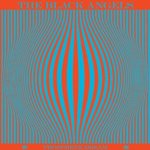|
|
 |
Dusted Reviews
Artist: The Black Angels Album: Phosphene Dream Label: Blue Horizon Review date: Oct. 20, 2010 |

|
|
|
 |
Shortly after The Black Angels’ last album Directions to See a Ghost, the band began spending serious time with Roky Erickson. The fivesome toured with him during the summer of 2008 as both opener and backing band. That fall, the Angels also went to the studio with Erickson to lay down some tracks Erickson had written but up to then, never recorded. You can hear a little of the band’s dalliance with the psych pioneer on this third full-length, which diverges from VU-ish drone into brighter, janglier territories. It’s most obvious is mod holiday “Sunday Afternoon,” whose hiccupping electric jug work is clearly a nod to Erickson. But you can also hear it wherever band members kick up their heels and start to have fun -- in surf-tinged, early 1960s redolent cuts like “Telephone” and sprawling “Yellow Elevator #2,” both among the disc’s strongest tracks.
Not that there isn’t a fair bit of trudging mixed in along the way. “Bad Vibrations” opens in a splintered haze of reverb with a lead-heavy, four-based beat keeping the ritual pace. Two guitars are in play on this track, one shattered into pieces by some sort of effect, so that it sounds like it’s being played through a window fan, the other picking out the languorous menace of a Brian Jonestown-esque melody. Singer Alex Maas has a high, tremulous voice that sounds eerily like “White Rabbit”-era Grace Slick. There are hints of Pink Floyd’s “Interstellar Overdrive” here, too, along with the heavy swagger of Black Rebel Motorcycle’s first album, and not a touch anywhere of lightness or humor. “River of Blood” is, likewise, monolithic and bludgeoning, and “Entrance Song” is one more slog through the road song’s endless monotony. (“Rolling fast on 1-35 / Through the day and past the night.”) There’s a kind of glamorous nihilism in these songs, but they’re far too static, staying in one heavy groove all the way through.
Contrast this with “Telephone,” which opens with a snippet of radio-staticky singing, as if the song were, indeed, the long-lost 1960s cover that it so resembles. The song, with its diagonal slashes of surf guitars, its bottom-bumping, fuzzy bassline, its heedless swirls of organ, is pure sugar-rushing British Invasion. Close your eyes, and it could be 1965. Or “Yellow Elevator #2”, whose guitar riffs spin in wheeling mandalas and whose stretched-out, psych-tripped choral break is a close cousin to Pink Floyd’s “Astronome Domini.”
Even at Phosphene Dream’s best moments, you can’t help feeling that this is a very competent, earnest reproduction of things that have already been done. Some of these tracks could slip quite easily onto, say, the Texas-centric Mojo I Can See for Miles compilation, alongside cuts from the Red Crayola, Bubble Puppy, The Chocolate Watchband and, of course, The 13th Floor Elevators. That’s high praise in one sense, but also a sign that there’s not much new here. Still, what’s done again is done with style and, occasionally, an agile sense of play.
By Jennifer Kelly
|







